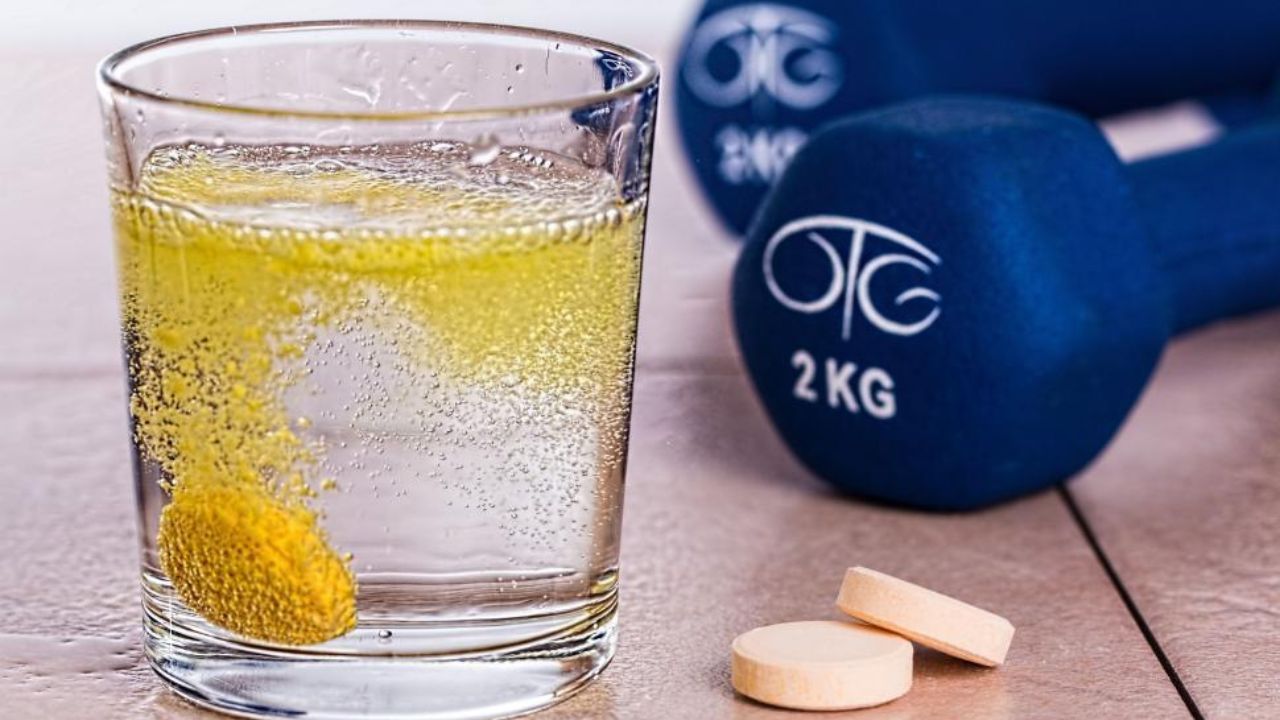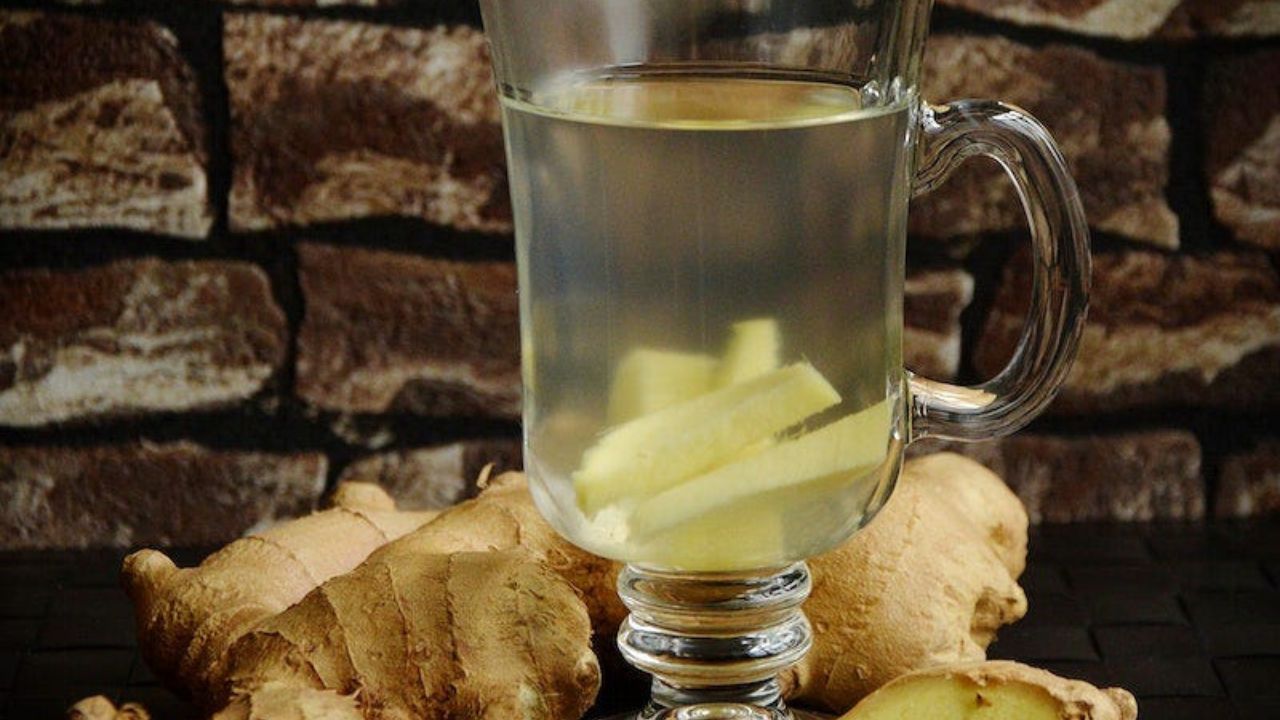
Welcome to the ultimate guide on top 10 natural aids to boost your post-workout recovery.
In this evidence-based article, we will explore the importance of nutrition, hydration strategies, the power of protein, essential vitamins and minerals, natural anti-inflammatory foods, stretching and flexibility, cold and hot therapy, natural supplements, and mind-body techniques for stress relief.
Designed for those seeking freedom in their fitness journey, this guide offers expert insights to optimize your recovery and enhance your overall well-being.
The Importance of Nutrition in Post-Workout Recovery
In order to maximize post-workout recovery, it is imperative to understand the importance of nutrition and its role in replenishing the body's energy stores and promoting muscle repair.
One key element in post-workout nutrition is carbohydrates. Carbohydrates serve as the primary source of energy for the body, and consuming them after a workout helps replenish glycogen stores that are depleted during exercise. This replenishment is essential for restoring energy levels and preventing muscle fatigue.
Additionally, antioxidants play a crucial role in muscle recovery. Intense exercise generates free radicals, which can cause oxidative stress and damage to muscle tissue. Antioxidants help neutralize these free radicals, reducing inflammation and promoting faster muscle repair.
Including antioxidant-rich foods such as berries, dark leafy greens, and nuts in your post-workout meals can aid in muscle recovery and overall health.

Hydration Strategies for Optimal Recovery
Proper hydration is crucial for optimal recovery after a workout.
When it comes to hydration strategies, it is important to consider the benefits of both water and sports drinks.
While water is essential for maintaining hydration, sports drinks can provide additional benefits by replenishing electrolytes lost through sweating.
Understanding the importance of electrolytes in hydration strategies can help individuals make informed choices for optimal recovery.
Water Vs. Sports Drinks
Regularly consuming sports drinks instead of water during exercise can provide the necessary hydration and electrolyte replenishment needed for optimal recovery. While water is essential for overall hydration, sports drinks offer additional benefits that can enhance performance and aid in recovery.
Sports drinks are formulated to contain a precise balance of carbohydrates, electrolytes, and fluids, which can help replenish glycogen stores, maintain blood sugar levels, and prevent dehydration. In comparison, water alone may not provide the same level of electrolyte replenishment. Additionally, the carbohydrates in sports drinks can provide a quick source of energy during intense workouts.
However, it is important to note that sports drinks should be consumed in moderation and may not be necessary for all individuals, especially those engaging in low to moderate intensity exercises. As always, it is important to listen to your body's needs and consult with a healthcare professional for personalized advice.

Importance of Electrolytes
The importance of electrolytes in optimizing recovery cannot be overstated. They play a crucial role in maintaining proper hydration levels and aiding in post-workout replenishment. Electrolytes are minerals that carry an electrical charge and are essential for various bodily functions, including muscle contractions and nerve impulses.
During exercise, electrolytes are lost through sweat, and replenishing them is vital for maintaining hydration and supporting recovery. Electrolyte replenishment helps prevent dehydration, muscle cramps, and fatigue, allowing for better performance and faster recovery. Additionally, electrolytes help regulate fluid balance, nerve function, and pH levels in the body.
Proper hydration, facilitated by electrolytes, promotes nutrient absorption, cell function, and overall health. Incorporating electrolyte-rich foods and beverages, such as coconut water, sports drinks, and fruits, into your post-workout routine can provide the necessary electrolyte replenishment and optimize your recovery.
The Power of Protein for Muscle Repair
Protein plays a vital role in muscle repair and recovery after intense physical activity. It provides the building blocks necessary for the repair and growth of muscle tissue. Consuming high-quality protein sources such as lean meats, fish, dairy products, and plant-based options can support optimal muscle repair and aid in post-workout recovery.
Protein for Muscle Repair: Importance
Adequate consumption of high-quality protein is essential for optimal muscle repair and recovery after intense workouts. Protein provides the building blocks needed for muscle tissue repair and synthesis, making it a crucial nutrient for athletes and fitness enthusiasts. In addition to aiding in muscle repair, protein also plays a role in maintaining a healthy immune system, supporting hormone production, and promoting overall well-being.
Here are three key points to consider when discussing protein supplementation benefits and vegetarian protein sources:
Protein supplementation benefits: Protein supplements can be a convenient and effective way to increase protein intake, especially for those who struggle to meet their daily requirements through whole foods alone. They can help promote muscle recovery and growth, enhance exercise performance, and support weight management goals.

Vegetarian protein sources: Plant-based protein sources, such as legumes, tofu, tempeh, seitan, quinoa, and hemp seeds, offer a variety of essential amino acids and can be excellent alternatives for individuals following a vegetarian or vegan diet. These sources are not only rich in protein but also provide additional nutrients like fiber, vitamins, minerals, and antioxidants.
Balancing protein intake: It's important to strike a balance between protein intake and other macronutrients, such as carbohydrates and fats, to ensure overall dietary adequacy. While protein is crucial for muscle repair, consuming too much protein without sufficient carbohydrates may compromise energy levels and impair performance. It's recommended to consult with a registered dietitian or sports nutritionist to determine the appropriate protein intake based on individual needs and goals.
Protein Sources for Recovery
During post-workout recovery, it is important to incorporate a variety of protein sources, such as lean meats, dairy products, and plant-based alternatives, in order to support muscle repair and growth.
For individuals following a vegetarian or plant-based diet, there are several options available that can provide the necessary protein for recovery. Some popular vegetarian protein options include tofu, tempeh, lentils, chickpeas, and quinoa. These plant-based foods not only contain protein but also offer other essential nutrients such as fiber, vitamins, and minerals.
Additionally, incorporating plant-based recovery foods such as fruits, vegetables, and whole grains can provide antioxidants and other compounds that aid in reducing inflammation and promoting overall recovery.
It is important to note that while plant-based options can provide the necessary protein for recovery, it may be necessary to combine different sources to ensure adequate amino acid intake.
Incorporating Essential Vitamins and Minerals Into Your Recovery Routine
How can you ensure that your recovery routine includes all the essential vitamins and minerals? Incorporating vitamins and minerals into your recovery is crucial for optimal health and performance. Here are three ways to ensure you're getting the essential nutrients your body needs:

Eat a balanced diet: Include a variety of fruits, vegetables, whole grains, lean proteins, and healthy fats in your meals. These foods are rich in vitamins and minerals that support recovery and overall well-being.
Consider supplementation: If you struggle to meet your nutrient needs through diet alone, supplements can be a convenient option. Talk to a healthcare professional to determine which supplements may be beneficial for you.
Stay hydrated: Water is essential for nutrient absorption and overall recovery. Make sure to drink enough water throughout the day, especially before and after your workouts.
Harnessing the Benefits of Natural Anti-Inflammatory Foods
To maximize post-workout recovery, incorporating a variety of natural anti-inflammatory foods into your diet can help reduce inflammation and promote faster healing.
One effective way to consume these foods is by incorporating them into anti-inflammatory smoothies. These smoothies can be packed with ingredients such as berries, leafy greens, turmeric, ginger, and flaxseeds, which are all known for their anti-inflammatory properties.
Berries, such as blueberries and strawberries, are rich in antioxidants that help fight inflammation.
Leafy greens, like spinach and kale, are loaded with vitamins and minerals that support the healing process.

Turmeric and ginger are powerful healing herbs that can reduce inflammation and pain.
Lastly, flaxseeds provide omega-3 fatty acids that aid in reducing inflammation.
Effective Strategies for Rest and Sleep in Recovery
Rest and sleep are essential for optimal recovery after exercise. Quality sleep is crucial for repairing and rebuilding muscles, as well as for hormone regulation and immune function.
In addition to prioritizing sleep, incorporating restorative practices such as stretching, foam rolling, and relaxation techniques can further enhance the recovery process.
Sleep Quality for Recovery
Adequate sleep quality is essential for optimal recovery after intense physical activity. Sleep plays a crucial role in the body's repair and regeneration processes, allowing muscles to recover and adapt to the demands placed upon them. However, sleep quality can be affected by various factors, including sleep deprivation.
Here are three key points regarding sleep quality and its impact on recovery:
Sleep quality and performance: Research has consistently shown that individuals who prioritize sleep and achieve higher sleep quality have improved athletic performance. This includes enhanced speed, accuracy, reaction time, and overall physical performance.

Sleep deprivation effects on recovery: Lack of sleep can impair the body's ability to recover effectively after intense exercise. Sleep deprivation has been associated with increased muscle soreness, decreased muscle strength and power, and reduced immune function, all of which can hinder recovery and performance.
Strategies for improving sleep quality: To optimize recovery, it is crucial to prioritize sleep hygiene and establish a consistent sleep routine. This includes creating a sleep-friendly environment, practicing relaxation techniques before bed, and avoiding stimulants like caffeine close to bedtime.
Restorative Practices After Exercise
Implementing restorative practices after exercise can significantly enhance the body's recovery processes. This includes incorporating relaxation techniques and establishing a consistent sleep routine.
Restorative yoga and foam rolling techniques are two effective methods that can aid in post-workout recovery. Restorative yoga involves gentle poses and deep breathing exercises that promote relaxation and stress reduction. This allows the body to recover more efficiently, while also improving flexibility and reducing muscle soreness.
On the other hand, foam rolling techniques involve the use of a foam roller to apply pressure to specific areas of the body. This helps to release tension and promote circulation, alleviating muscle tightness and reducing the risk of injury.
The Role of Stretching and Flexibility in Post-Workout Healing
Engaging in targeted stretching exercises after a workout enhances muscle recovery and promotes overall flexibility. Stretching is an important component of any fitness routine as it helps to increase blood flow to the muscles, reduces muscle soreness, and improves joint range of motion.
Here are three effective stretching techniques and flexibility exercises that can aid in post-workout healing:

Static stretching: This involves holding a stretch for a prolonged period of time, typically 20-30 seconds. It helps to improve flexibility and relax the muscles.
Dynamic stretching: These are active movements that take the muscles through a full range of motion. Dynamic stretching helps to warm up the muscles and prepare them for exercise.
Proprioceptive neuromuscular facilitation (PNF) stretching: This technique involves contracting and relaxing the muscles while stretching. It is highly effective in increasing flexibility and improving muscle strength.
Incorporating these stretching techniques and flexibility exercises into your post-workout routine can greatly enhance your recovery and help you maintain optimal flexibility.
The Science Behind Cold and Hot Therapy for Recovery
The role of cold and hot therapy in post-workout recovery is well-documented, and understanding the science behind these therapies can provide valuable insights into their effectiveness.
Cold therapy, also known as cryotherapy, involves the application of ice or cold packs to reduce inflammation and pain. It constricts blood vessels, numbs the area, and slows down nerve impulses, which can help alleviate muscle soreness and swelling. Additionally, cold therapy can improve circulation and promote faster healing by reducing the metabolic rate of cells and decreasing the production of inflammatory substances.
On the other hand, hot therapy, such as heat packs or hot baths, can increase blood flow to the muscles, relax tense muscles, and relieve stiffness. It can also enhance flexibility and promote muscle recovery by increasing the delivery of oxygen and nutrients to the tissues.

Overall, both cold and hot therapy have their unique benefits in post-workout recovery and can be used in combination for optimal results.
Utilizing Natural Supplements to Enhance Recovery
An effective strategy to enhance recovery after intense workouts is by incorporating natural supplements into your regimen. Natural supplements can provide the body with the necessary nutrients and compounds to support muscle repair, reduce inflammation, and improve overall recovery.
Here are three natural supplements that have been shown to be effective recovery aids:
Turmeric: This powerful spice contains curcumin, a compound known for its anti-inflammatory properties. Turmeric can help reduce post-workout muscle soreness and promote faster recovery.
Fish Oil: Rich in omega-3 fatty acids, fish oil has been shown to reduce inflammation and support joint health. It can also improve muscle protein synthesis and enhance recovery.
Tart Cherry Juice: Tart cherries have high levels of antioxidants and anti-inflammatory properties. Consuming tart cherry juice post-workout can help reduce muscle damage and inflammation, leading to faster recovery.
Mind-Body Techniques for Stress Relief and Faster Recovery
Practicing mindfulness and employing deep breathing exercises can significantly contribute to stress relief and faster recovery after intense workouts.

Mindfulness techniques, such as meditation and body scanning, help individuals become aware of their thoughts, feelings, and bodily sensations, promoting a sense of calm and relaxation. By focusing on the present moment, mindfulness can reduce stress and anxiety, which are often experienced after intense physical activity.
Deep breathing exercises, on the other hand, help activate the body's relaxation response by slowing down the heart rate and lowering blood pressure. This can aid in muscle recovery and reduce post-workout soreness.
Incorporating these techniques into a post-workout routine can have a profound impact on overall well-being and enhance the body's ability to recover and adapt to physical stress.
Frequently Asked Questions
How Soon After a Workout Should I Eat to Optimize Recovery?
Optimal timing for post-workout nutrition is crucial for maximizing recovery. Nutrient timing plays a significant role in replenishing glycogen stores and promoting muscle protein synthesis. Consuming a balanced meal or snack within 30 minutes to 2 hours after exercise is recommended.
Are There Any Specific Hydration Strategies for Endurance Athletes?
Specific hydration strategies for endurance athletes, such as long distance runners, are crucial for optimizing performance and recovery. These strategies may include pre-hydration, drinking fluids with electrolytes during exercise, and post-exercise rehydration to replace lost fluids and electrolytes.
What Are Some Plant-Based Protein Sources That Can Aid in Muscle Repair?
Plant-based protein sources are essential for muscle repair and recovery. Vegan protein options such as tofu, tempeh, lentils, quinoa, and hemp seeds provide the necessary amino acids to support muscle growth and repair after a workout.
Which Vitamins and Minerals Are Most Important for Post-Workout Recovery?
Vitamin C, magnesium, zinc, and omega 3 fatty acids are essential nutrients for post-workout recovery. These micronutrients play crucial roles in reducing inflammation, supporting muscle repair, and replenishing energy stores.

Can You Provide Some Examples of Natural Anti-Inflammatory Foods That Can Help With Recovery?
Anti-inflammatory foods can play a crucial role in post-workout recovery by reducing inflammation and promoting healing. Incorporating these foods into your diet, along with pre-workout nutrition tips for optimal performance, can enhance your overall fitness and well-being.
Conclusion
In conclusion, incorporating natural aids into your post-workout recovery routine can help optimize healing and promote faster recovery. From proper nutrition and hydration strategies to the power of protein and essential vitamins, these evidence-based practices can support muscle repair and overall well-being.
Additionally, incorporating natural anti-inflammatory foods, stretching and flexibility exercises, and utilizing cold and hot therapy can further aid in the recovery process.
Lastly, incorporating mind-body techniques for stress relief can enhance overall recovery and promote a healthier mindset.
 Mobility trainingHome Fitness RecoverySports Injury PreventionPersonal Physical TherapyOrthopedic SolutionsPrivacy PolicyTerms And Conditions
Mobility trainingHome Fitness RecoverySports Injury PreventionPersonal Physical TherapyOrthopedic SolutionsPrivacy PolicyTerms And Conditions
